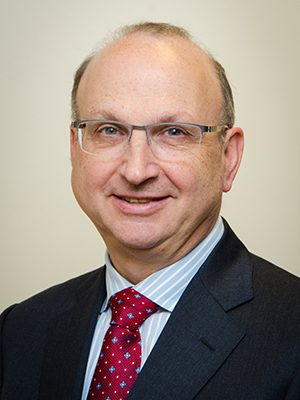Message from Dr. Norman Rosenblum on World Diabetes Day

World Diabetes Day marks a renewed opportunity to raise awareness about the growing burden of diabetes on the health of individuals, families and communities and its economic impact. Diabetes—a chronic condition that occurs when the body is either unable to produce or properly use insulin, is known to reduce lifespan and those with the disease are more likely to experience serious complications such as sight loss, amputations, kidney failure, heart attacks and strokes.
Today, over 3 million people living in Canada (8.9% of the population) have been diagnosed with diabetes, affecting more Canadians than ever before and, after adjusting for the aging population over time, the prevalence has been increasing at an average rate of 3.3% per year. This rate is expected to continue to increase in the coming decades as Canada’s population ages, leading to increases in complications and a higher burden on individuals, families, communities, and health care systems. This underscores the need for further investment into diabetes research and development of new prevention and treatment approaches to help reverse this trend.
This year, the International Diabetes Federation (IDF) has chosen Education to Protect Tomorrow as its theme, highlighting the need for better access to quality diabetes education for health care professionals, people affected by diabetes and policy makers impacting health care delivery.
This leads me to reflect on the role of CIHR and particularly INMD, with respect to diabetes education, especially as CIHR’s objective to “excel, according to internationally accepted standards of scientific excellence, in the creation of new knowledge and its translation into improved health for Canadians, more effective health services and products and a strengthened Canadian health care system” highlights the significance of new knowledge and the potential to change practice and achieve improved health outcomes.
To support this, at INMD, we are prioritizing knowledge mobilization (KM), to target knowledge users throughout the different stages of research funded through the 100 Years of Insulin: Accelerating Canadian Discoveries to Defeat Diabetes initiative, co-led by INMD, and the Institutes of Infection and Immunity, Genetics and Indigenous Peoples’ Health, in collaboration with the Institutes of Aging, Circulatory and Respiratory Health, Gender and Health, Human Development, Child and Youth Health, Health Services and Policy Research, Musculoskeletal Health and Arthritis, and Neurosciences, Mental Health and Addiction. I would like to thank our partners who have contributed to this initiative, including Diabetes Canada, JDRF Canada, the Kidney Foundation of Canada and Fonds de recherche du Québec–Santé, as well as our international partners, the UK Medical Research Council, Diabetes Fonds, Health Holland, and ZonMw (The Netherlands Organisation for Health Research and Development). We recognize the importance of these partners not only in co-designing and co-funding this research, but also in the KM cycle, since many of these organizations engage health care professionals and people affected by diabetes through activities such as professional conferences, educational events, the development of clinical practice guidelines, newsletters, and patient education resources.
Today, we must remember that effectively addressing diabetes is the collective result of investment from government, researchers, health care professionals, and Canadians living with diabetes. Through innovative diabetes research and KM efforts, we can make a significant contribution to the prevention of diabetes and improving the lives of Canadians living with diabetes.
Dr. Norman Rosenblum, MD, FRCPC, FCAHS
Scientific Director
CIHR Institute of Nutrition, Metabolism and Diabetes
- Date modified: